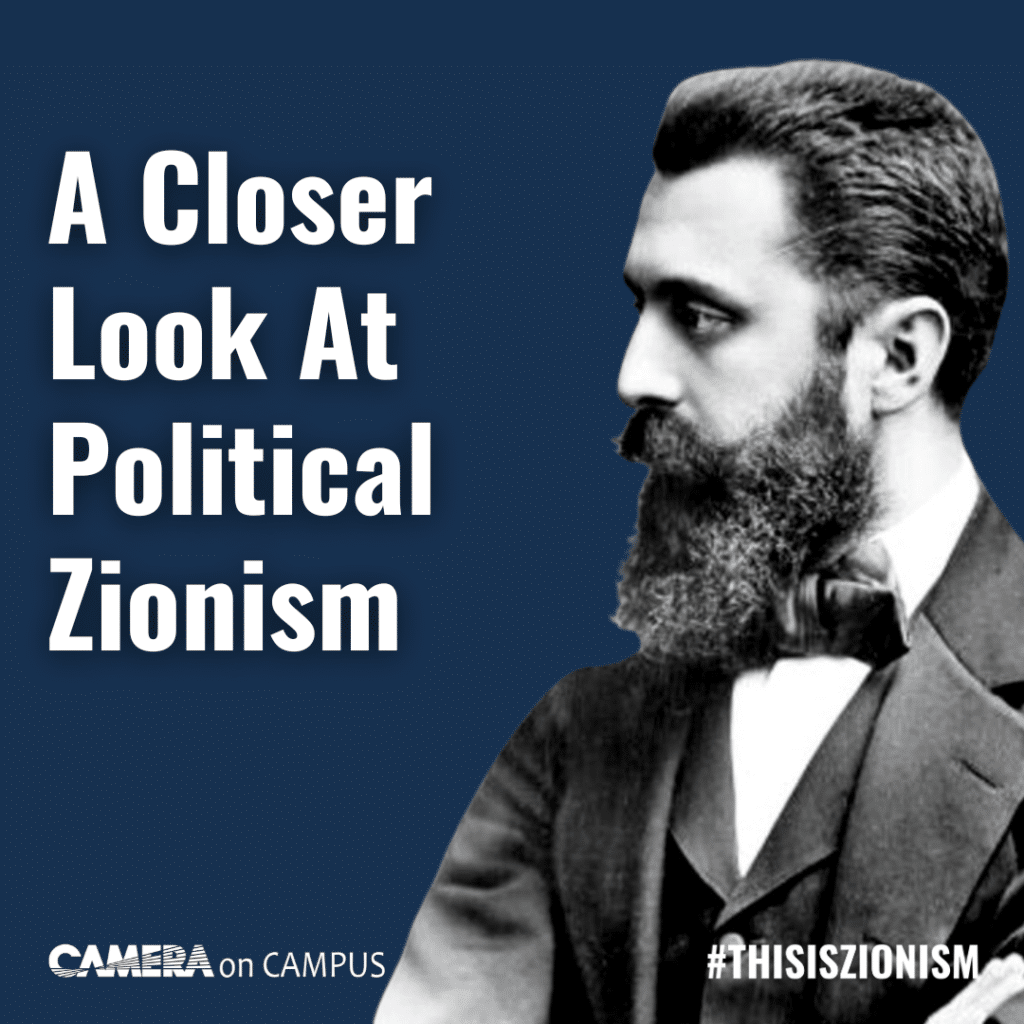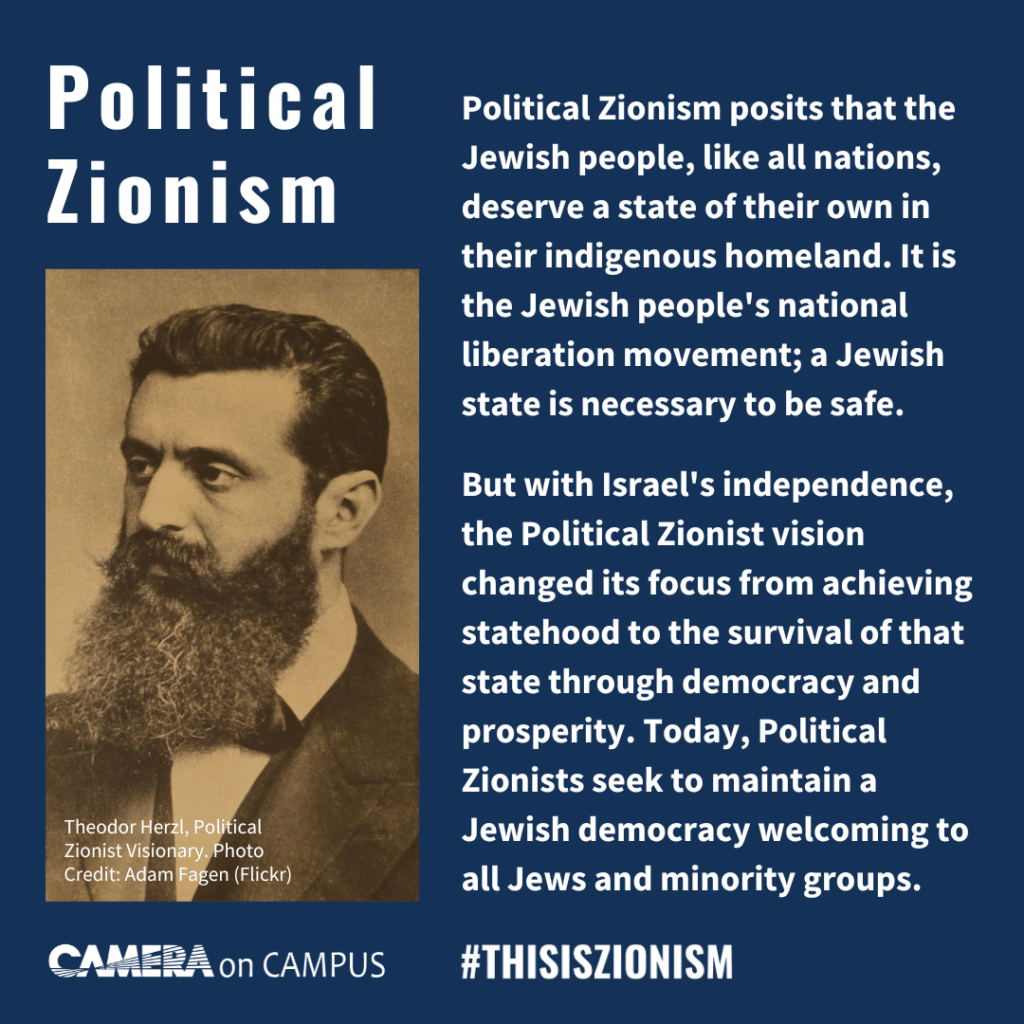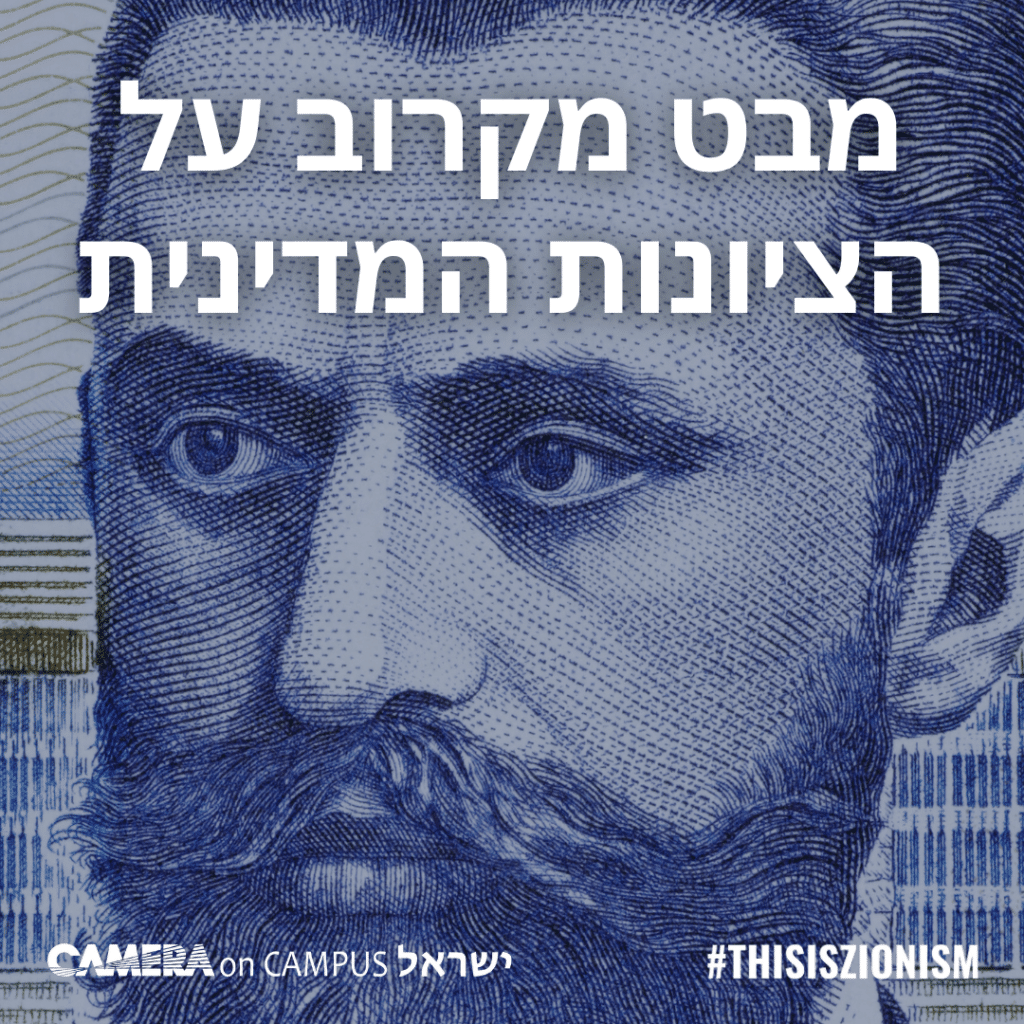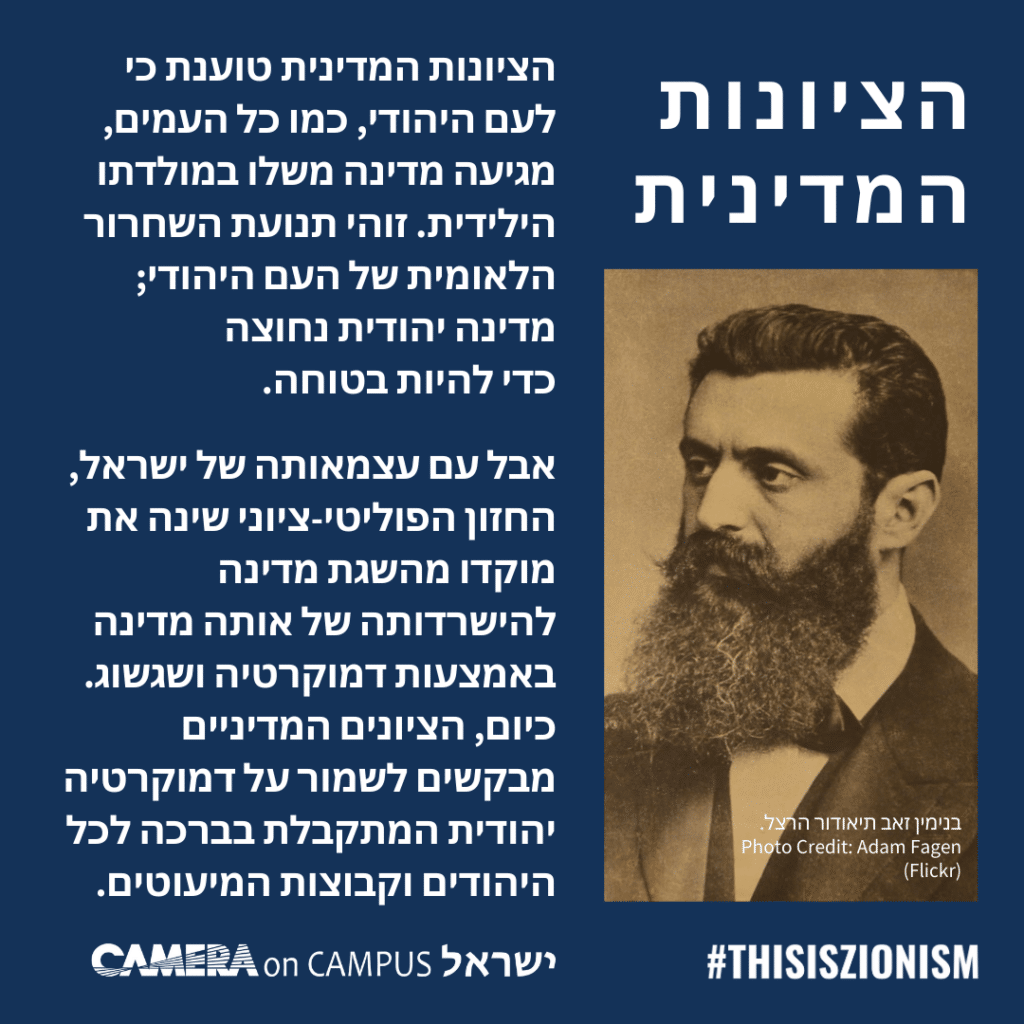Political Zionism
Political Zionists believe that an independent Jewish state is necessary for the world’s Jewish population to be safe. Political Zionists formed a national liberation movement that began in 1897 and successfully contributed to the establishment of the State of Israel in 1948.
History of the Modern Zionist Movement
In 1896, Theodore Herzl published Der Judenstaat, the ideological manifesto of the modern political Zionist movement. In his essay, Herzl argued that the only answer to the problem of antisemitism in Europe is the establishment of an independent Jewish state.
In 1897, Herzl founded the World Zionist Organization at the First Zionist Congress in Basel, Switzerland.
In 1903, Herzl realized that the Jews must return to Eretz Yisra’el, the land of Israel and the Jewish homeland.
Over 51 years, the WZO raised funding to advance their cause, encouraging immigration to the land of Israel, and setting the stage for the establishment of the State of Israel in 1948.
Israel’s early political leaders, Menachem Begin, David Ben Gurion, Golda Meir, and many others drew inspiration from, and ultimately fulfilled, the vision of Herzl and the World Zionist Organization.
They also introduced many ideas from their experiences in Europe and the United States. They applied Jewish and Western values to complicated ethical situations, from fighting wars against their hostile neighbors to implementing democracy, economic stability, and diversity in the country.
Today, Political Zionism continues to evolve as Israel’s parliament (the Knesset) grapples with shaping the future of the world’s only Jewish state.
“Zionism arose from the dashed hopes of Emancipation, the European movement promising that Jews would be recognized fully as citizens communally and individually.” —Dr. Gil Troy, “The Zionist Ideas: Visions for the Jewish Homeland—Then, Now, Tomorrow” (Source)










